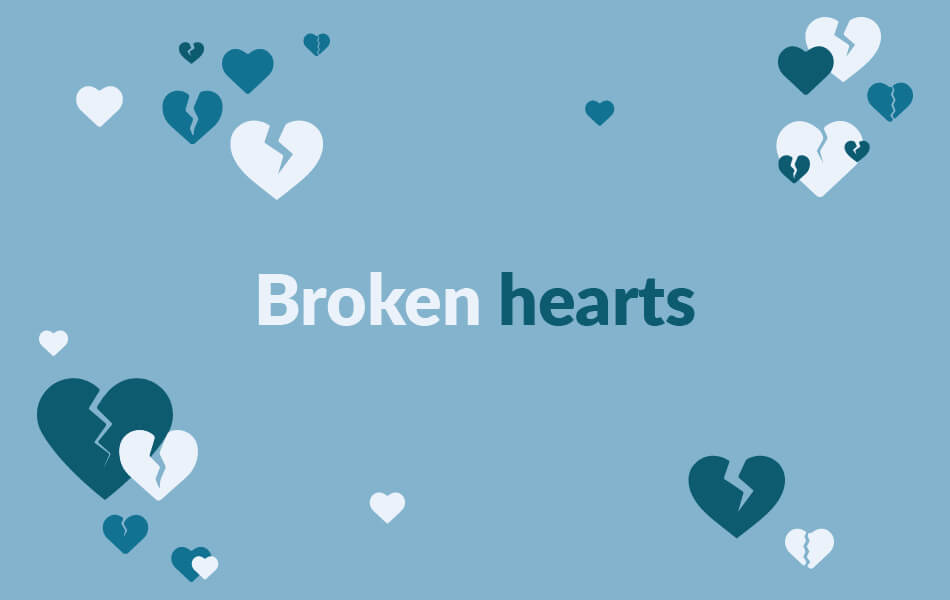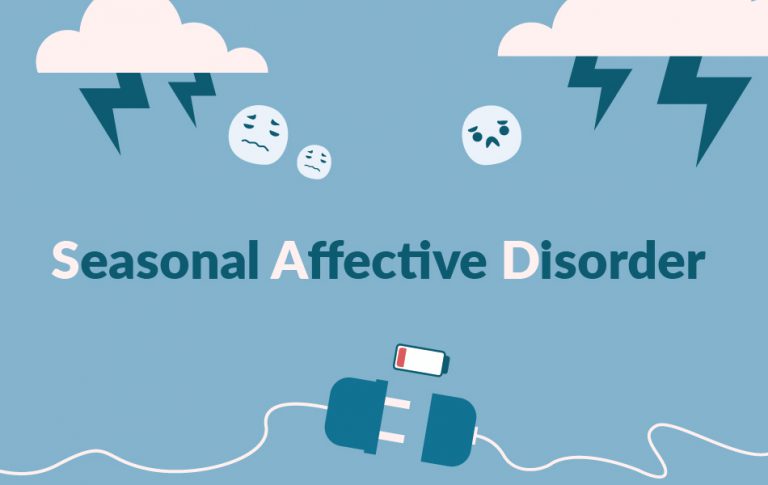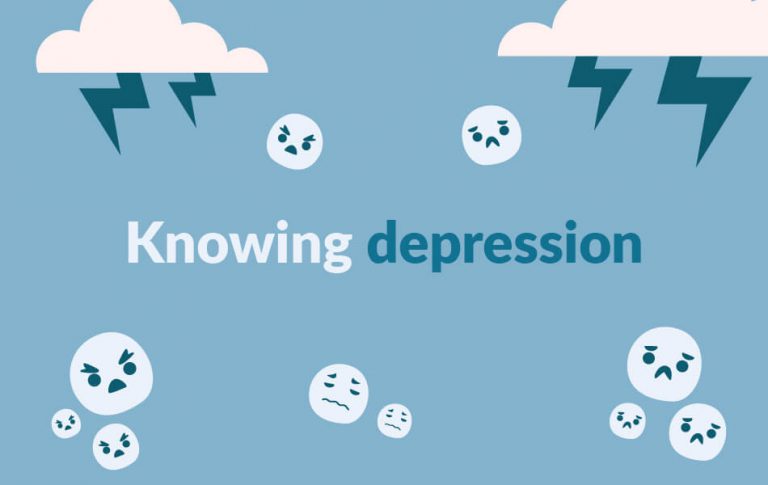Not every Valentine’s Day is all candy and romance
Sometimes you may feel like you can’t breathe or wonder when you’ll ever feel okay again
The day is anything but sweet for those who have lost a loved one, experienced a breakup, or are preparing to divorce or separate. It is possible to develop Takotsubo Cardiomyopathy, commonly known as Broken Heart Syndrome, due to emotional and physical challenges. When you experience heartbreak, it triggers a cascade of emotions that can be overwhelming.
However, even in the midst of this pain, it is important to recognise that healing is possible. With time, understanding, and self-compassion, you can see beyond the hurt and find peace and joy once again.
The pain and sadness can be so intense that it can feel like your world has ended. It can be difficult to see a future without the person you love. When people experience heartbreak, they may succumb to depression, anxiety and, in more extreme cases, post-traumatic stress disorder (PTSD).
But remember, your heart will heal in time, and you can begin to put the pieces back together. Look at our previous article for more information about broken heart syndrome.

The Causes of a Broken Heart
Stress hormones like adrenaline are released when the body is highly stressed, whether it is from a bad breakup or a death of a loved one. Temporarily, these hormones interfere with your heart’s function, affecting even healthy people.
When one experiences Broken Heart Syndrome, they may experience any of the following:
- A disrupted heartbeat rhythm that’s usually normal and steady
- Part of your heart temporarily enlarges (the lower part of your left ventricle)
- Forceful contraction in other areas of the heart.
Temporary heart muscle failure may result from these changes. As mentioned, intense emotional and physical stressors can cause broken heart syndrome. The following are some examples of these stressors:
Sudden emotional stressors include:
- Grief from losing a loved one or other significant losses such as a relationship, home, money or a beloved pet
- Receiving bad news
- Extreme anger
Sudden physical stressors include:
- Severe pain
- Exhaustion from physical events
- Health issues or undergoing surgery
Broken heart syndrome symptoms can appear minutes to hours after a stressful event. You may feel symptoms similar to a heart attack due to the release of stress hormones. The following are the signs and symptoms of broken heart syndrome:
Signs and Symptoms of a Broken Heart
- Angina – sudden, severe chest pain
- Shortness of breath
- An irregular heartbeat (arrhythmia)
- Hypertension (low blood pressure)
- Palpitations in the heart
How Do Broken Hearts and Heart Attacks Differ?
Broken heart syndrome has some signs and symptoms that differ from heart attacks. Symptoms of broken heart syndrome appear suddenly after emotional or physical stress. Here are some ways in which broken heart syndrome differs from heart attacks:
- Heart attack EKG results differ from EKG results for a person with broken heart syndrome.
- Due to a heart attack, blood tests will indicate evidence of heart damage, whereas there won’t be any damage from broken heart syndrome.
- There are no coronary artery blockages, indicating a heart attack.
- Tests reveal ballooning in the lower left chamber of the heart (left ventricle) – also a sign of a heart attack.
- Recovery can take a month or more for a heart attack, while recovery can take days or weeks for broken heart syndrome.
Facts about Broken Heart Syndrome
Broken Heart Syndrome can be difficult to understand, but it can heal and move forward with knowledge and support. Here are some facts we should know about having broken heart syndrome:
- It is not just your mind that feels heavy when you are experiencing profound emotional sadness. It also has a significant impact on your body.
- As a result of your heart getting broken, your immune system reduces, your blood pressure and heart rate may rise, and you may experience significant muscle weakness.
- Heartbreak and grief can flood the body with hormones, specifically cortisol, which can cause chest pain and a heavy feeling.
- Losing someone you love can lead to heart pain, increasing the likelihood of a heart attack.
- A woman’s chances of suffering from Broken Heart Syndrome are ten times greater than a man’s.

Tips for Dealing with and Preventing Broken Heart Syndrome
According to our knowledge, broken heart syndrome (also called Takotsubo cardiomyopathy) cannot be prevented. The good news is that you can minimise symptoms of stress by learning stress management and problem-solving techniques.
The use of relaxation techniques can also be beneficial. Here are a few examples you may consider:
- Practicing Yoga
- Meditation exercises
- Mindfulness practice
- Writing in a journal
- Lighting scented candles
- Inhaling long, deep breaths and slowly exhaling
- Relaxing in a warm bath
There may be a support group that can help you cope with your stress and share coping skills, depending on the source of your stress. You might also benefit from the assistance of a professional counsellor.
You can also manage physical and emotional stress in healthy ways. Habits that contribute to this include:
1. Maintain a healthy diet: When you are going through a difficult period, make sure to eat well, choosing healthy foods to keep you nourished.
2. Exercise regularly. For example: go for a walk and feel the sun on your face.
3. Do not stay in bed: When hearts get broken, it is common for people to feel stunned and stuck. Therefore, you should get up and move around.
4. Get good quality sleep: Try to maintain a regular sleep schedule. For instance, you are going to bed at a fixed time each night and getting 6 to 8 hours of sleep. Don’t feel ashamed if you require medication to help you sleep, regulate your mood, or manage your cardiac health.
5. Spend time with others: However, try to limit your exposure to emotionally driven events if you feel too fragile. However, you shouldn’t completely isolate yourself from people. As a result, you need to determine which social connections will be supportive and which will be too stressful for you.
6. Don’t bottle up your emotions: The body’s stress response gets greatly reduced by expressing emotions.
7. Grief does not have a time limit: Be careful not to let others set yours for you, either. Your healing time is uniquely yours.
8. Don’t neglect your physical needs: It can be healing to experience softness, warmth, and touch. You can also indulge your senses in music and the beauty around you. Take the time to explore the world.
9. Know that you are loved: Remember that a broken heart does not mean you are unlovable. You are in the process of healing at this moment. Keep an open mind when love shows up again.
FAQs About Broken Heart Syndrome
- Does broken heart syndrome heal?
The answer is yes! Broken heart syndrome is only a temporary condition that most people experience. You will be able to recover from it without any long-term heart problems due to your heart not having any permanent damage. Most people fully recover within a few days or even weeks after experiencing a stressful event like losing someone they love.
- What should I do if I show symptoms of Broken Heart Syndrome?
You should seek emergency care or a therapist if you experience broken heart syndrome symptoms (also known as Takotsubo cardiomyopathy). Symptoms of broken heart syndrome, a heart attack, or another medical condition can only be diagnosed with tests.
- Does daily stress from ordinary life lead to Broken Heart Syndrome?
In most cases, no. The symptoms appear after an event that is sudden or extremely stressful. Consult your healthcare provider if chest pain or shortness of breath are frequent symptoms of moderate stress daily. In most cases, broken heart syndrome does not cause ongoing symptoms. Depending on the severity of your stress problem, your provider may prescribe medication, order tests, or prescribe stress management techniques.
- How do I take care of myself with Broken Heart Syndrome?
When you experience broken heart syndrome, the best thing you can do is to take the medications and visit your health provider as recommended. These steps are important because of the long-term risks that come with a broken heart (Takotsubo cardiomyopathy). Also, you can experience broken heart syndrome again or have other health conditions in the long run.

Finding healthy ways to manage stress is essential to avoid Broken Heart Syndrome recurrence. Getting psychological and emotional help through counseling is the most effective way to begin the healing process.
You can greatly benefit from talking to a psychologist, To deal with the emotional pain of grief, anxiety, and other stressors that may be causing your Broken Heart Syndrome.
On the other hand, if you need help managing depression, anxiety, trauma or chronic stress, please get in touch with Zwavelstream Clinic at 010 475 0150 or visit our website for more information.







